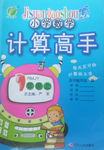
2. I doubted his reason for being absent from the football match at the airport (meet)
我不信他缺席足球比赛的原因是他不得不去机场接他叔叔。
2. that he had to meet his uncle本题考査同位语从句。 reason后面有for引导的短语作定语,之后是that引导的同位语从句来说明reason的内容。
题目来源:高考英语组合训练多项选择+完成句子 > 组合训练67-68


 计算高手系列答案
计算高手系列答案科目:高中英语 来源: 题型:
2. We could see the of the castle through the fog.
A. detail B. figure
C. outline D. image
查看答案和解析>>
科目:高中英语 来源: 题型:
3. The fact that he has been quite frank in admitting his mistakes to his credit.
A. means B. counts
C. does D. gains
查看答案和解析>>
科目:高中英语 来源: 题型:
10. You that; I had warned you of that several times. (should)
你本不该那样做;我已经警告你多次了。
查看答案和解析>>
科目:高中英语 来源: 题型:
7. If you want other people to be nice,friendly and fun in meeting you,do the same. If you take this attitude,it doesn't take long to realize that the cool people aren't or illmannered.
A. arrogant B. evident
C. typical D. conventional
查看答案和解析>>
科目:高中英语 来源: 题型:
4. The driver thinks accidents only happen to other people.
A. average B. common
C. usual D. normal
查看答案和解析>>
科目:高中英语 来源: 题型:
1. You can do it if you want to,but in my opinion it's not worth the .
A. effort B. strength
C. attempt D. force
查看答案和解析>>
科目:高中英语 来源: 题型:
The storm of abuse in the popular press that greeted the appearance of Webster's Third New International Dictionary is a curious phenomenon. 1 The New York Times,in a special editorial,felt that the work would "accelerate the deterioration" of the language and seriously accused the editors of betraying a public trust. The Journal of the American Bar Association saw the publication as "a serious blow to the cause of good English".
2 Just what's a dictionary for? What does the common reader go to a dictionary to find?
The demands are simple. 3 He wants to know what is current and respectable. But he wants―and has a right to―the truth,the full truth. And the full truth about any language is that there are many areas in which certainty is impossible and simplification is misleading.
Even in so settled a matter as spelling,a dictionary cannot always be absolute. 4 And so are traveled and travelled,plow and plough,catalog and catalogue,and scores of other variants. The reader may want a single certainty. He may demand that the dictionary "settle" the matter. 5 And the fact here is that there are many words in our language which may be spelled,with equal correctness,in either of two ways.
But one thing is certain:anyone who seriously announces in the year 1962 that he will be guided in matters of English usage by a dictionary published in 1934 is talking ignorant and pretentious nonsense.
A. Such evaluation requires us to examine basic principles.
B. But this is not the concern of the dictionary's; it must record the facts.
C. Never has a scholarly work of this importance been attacked with such extreme anger and contempt.
D. As a reader,he wants to know what an author intended to convey.
E. The common reader turns to a dictionary for information about the spelling,pronunciation,meaning,and proper use of words.
F. Theater is correct,but so is theatre.
G. The new dictionary has many faults.
1. 2. 3. 4. 5.
查看答案和解析>>
湖北省互联网违法和不良信息举报平台 | 网上有害信息举报专区 | 电信诈骗举报专区 | 涉历史虚无主义有害信息举报专区 | 涉企侵权举报专区
违法和不良信息举报电话:027-86699610 举报邮箱:58377363@163.com